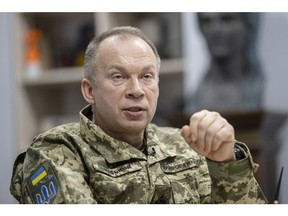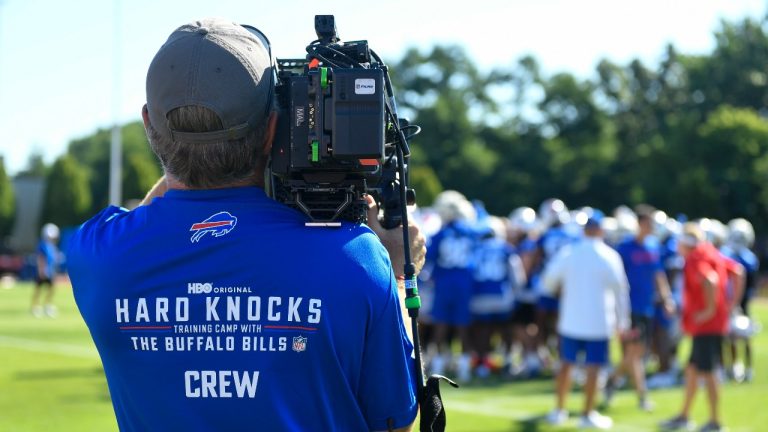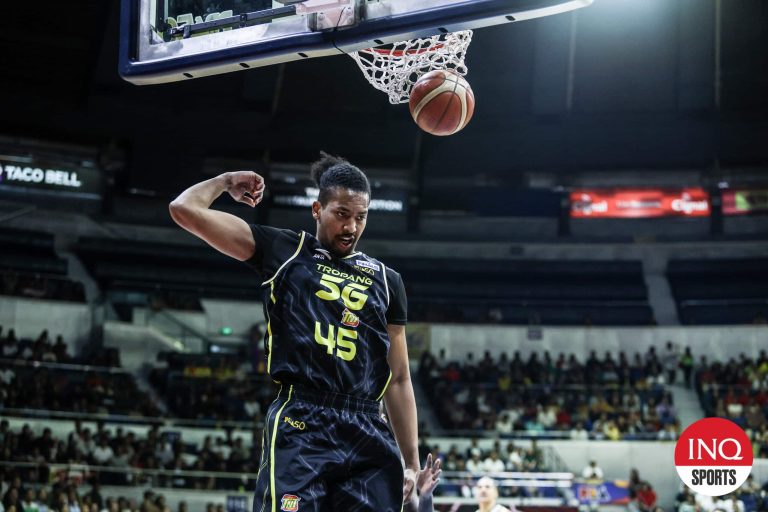The US administration of President Donald Trump has made it clear that it sees Volodymyr Zelenskiy as an obstacle to aiding Ukraine.

Article content
(Bloomberg) — The US administration of President Donald Trump has made it clear that it sees Volodymyr Zelenskiy as an obstacle to aiding Ukraine.
Article content
Article content
The question for Zelenskiy is whether Ukrainians agree.
The US political assaults on Zelenskiy have escalated since Friday’s White House bustup, when Trump and Vice President JD Vance branded Zelenskiy disrespectful and suggested that his intransigence, rather than Moscow’s aggression, was the impediment to a US-brokered cease-fire with Russia.
Advertisement 2
Article content
Zelenskiy, who is seeking to rally support from his European backers at a summit of leaders in London on Sunday, has no plans to leave office, according to his aides. His political future is a matter for the Ukrainian people and no one else, he says.
“The main question now is what to do next,” said Petro Poroshenko, Ukraine’s former president and the country’s main opposition leader, stressing that relations between Ukraine and the US are about more than just Zelenskiy and Trump.
“We hope that President Zelenskiy has a plan B,” Poroshenko said Saturday in a video address from Ukraine’s south, where he was delivering aid to troops.
In Ukraine, the pressure is rising among a populace that has endured three years of war since Russia’s full-scale invasion. Elections have been put on hold indefinitely, and Zelenskiy’s ratings have dropped from the stellar levels of the early months of 2022. Though he remains popular, a commonly heard sentiment is that people are tired and want some fresh perspective.
Against that backdrop, the sudden doubts cast over continued US support is one body blow among many.
Article content
Advertisement 3
Article content
The MAGA world has taken up the gauntlet since Friday, with Tucker Carlson — who interviewed Russian leader Vladimir Putin — posting a string of conspiracy theories and misinformation on X, including that Ukraine’s government under Zelenskiy had commited “a remarkable number of serious crimes.”
The paradox for Trump and Vance is the more they squeeze Zelenskiy, the more Ukrainians rally to their president’s side. It’s a dynamic that was on show on the streets of Kyiv immediately after the Oval Office debacle.
Trump “wanted to humiliate us all,” said Vladyslav Musiienko, 52, a photographer. “Despite the fact that I didn’t vote for Zelenskiy, my personal support for the president grew after this spectacle.”
General Oleksandr Syrskyi, head of the Ukrainian armed forces, posted his support for the president on X, saying the military was “with the Supreme Commander-in-Chief.”
Poroshenko, too, acknowledged the need to pull together. “People are waiting for me to criticize Zelenskiy, but no, I won’t do that as it’s not what the country needs right now,” he said. “The only thing that Ukraine needs now is unity.”
Advertisement 4
Article content
How much longer people will remain united under such strains is another matter.
While there is stabilization at the front, the Russians have superiority of manpower and weapons. Russians are at the same time increasing pressure on the information sphere, creating splits within military circles, between the military and society, and between Ukraine and its partners, according to a person familiar with the situation who asked not to be named discussing strategic security matters.
Even an eventual peace deal would almost certainly be hard for many Ukrainians to swallow, and potentially damaging politically for whoever is in charge.
Zelenskiy has acknowledged the pressure from the US, reiterating to Fox News on Friday that he’d resign if Ukraine secured NATO membership. He’s already said it’s clear he “won’t be in power for decades” and that he’d be ready to step down if it were to guarantee a durable peace for his country.
For now, the share of respondents who say they trust Zelenskiy rose to 65% from 57% in January, according to Feb. 20-21 survey by the Rating Group agency. That was surpassed only by trust for former top military commander Valerii Zaluzhnyi, now Ukraine’s ambassador to the UK, which held steady at 76%.
Advertisement 5
Article content
Zaluzhnyi, known as the “Iron General,” hasn’t explicitly ruled out running in an election against Zelenskiy. When asked about his political ambitions at an event in Kyiv on Feb. 19, he suggested the time was not ripe. On Saturday, he struck a tone of unity.
“This war is testing us for resilience and bravery. Additionally it shows who our true friends are,” Zaluzhnyi said on Telegram. Referencing the London talks on more support for Ukraine, he added: “It will be difficult, but together we will overcome everything.”
Zelenskiy’s term expired in May of last year but neither his administration nor Ukrainians at large believe elections can be held now. Indeed, holding elections during martial law is not just legally prohibited, the practicalities of doing so rule it out. What’s more, parliament passed a resolution last week saying that Zelenskiy should remain in power as long as Russia’s war continues and that new elections may only be held once peace has been achieved.
Putin, whose stated military goals in 2022 included “regime change” in Kyiv, weighed in on Ukraine and elections anyway. He claimed without proof last week that Zelenskiy’s ratings were half those of Zaluzhnyi, and said that Zelenskiy had “zero” chance of re-election.
Advertisement 6
Article content
Putin also sided with Trump, saying that the US president’s pressure for Ukrainian elections was in the interest of the country’s sovereignty.
Another Ukrainian official hinted at questions over Zelenskiy’s leadership style, saying that he should realize he needs strong professional advisers to whom he should listen. The president should stop being aggressive to those around him so they’re afraid to say what they think, said the person.
Public sentiment would suggest that even a change of president wouldn’t necessarily yield a leader more amenable to Trump and his plans for a rapid normalization of relations with Russia, however. Some 83% of Ukrainians surveyed by Rating Group said they’d agree to a cease-fire only under the condition that security guarantees are provided — the same sticking point that contributed to the scenes at the White House. Just 2% would agree to a cease-fire without conditions.
That reality made the escalation inevitable, independently of Zelenskiy’s personal history with Trump, according to Oleksandr Sushko, the head of the International Renaissance Foundation, a Kyiv-based charity that is part of the George Soros Open Society network.
Advertisement 7
Article content
“It would have happened anyway — if not now, then in a month or two,” Sushko said on Facebook. Trump’s priority for a speedy peace accord can only come on Putin’s terms, and “not a single Ukrainian leader would sign such a deal — even under the pressure of losing US support.”
The drumbeat from Washington, meanwhile, is relentlessly hostile.
The State Department this week terminated a US Agency for International Development initiative that had helped Ukraine repair vital energy infrastructure damaged by Russian attacks, NBC News reported. The move had been expected after USAID was ordered to suspend projects in Ukraine amid a broad US foreign aid freeze, but it’s a reminder of the consequences of Washington’s souring on Kyiv.
In the Trump administration’s new world order, Ukraine is reduced to a mere “submissive listener” and an “instrument” of US will, said Kyiv pensioner Anatoliy Makarenko.
“We do not accept this role,” said Makarenko. Zelenskiy was morally right to react so strongly, he added. “But I doubt that this will benefit us.”
—With assistance from Andrea Palasciano.
Article content







